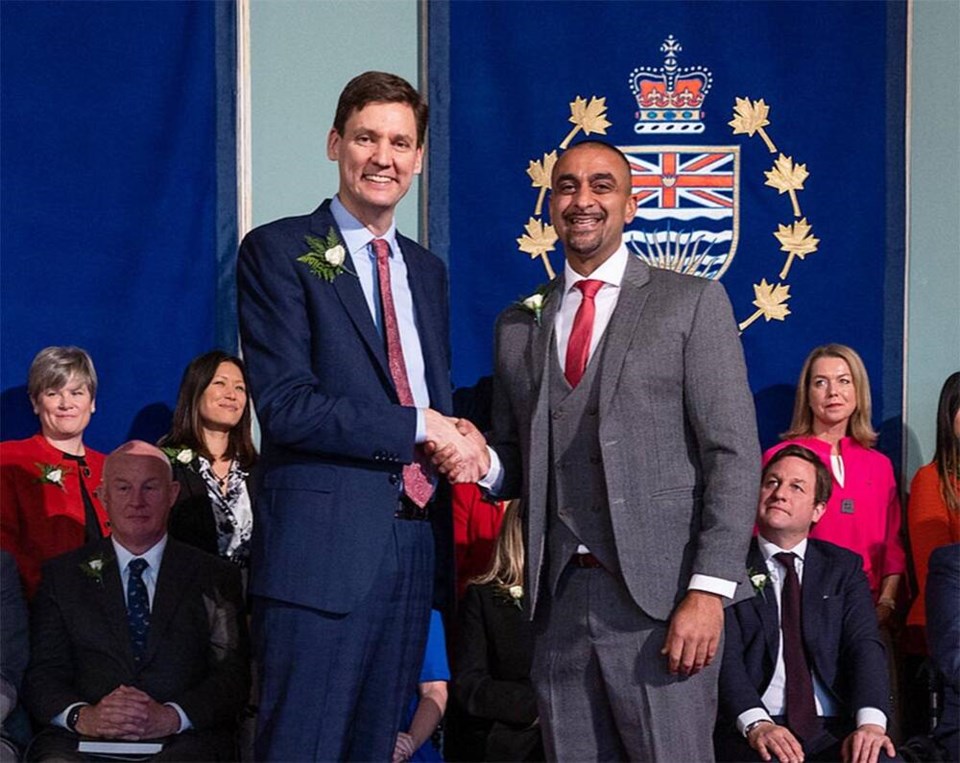The first ever minister of a standalone ministry aimed at tackling B.C.’s housing crisis will be one of the key speakers at an upcoming Union of BC Municipalities (UBCM) housing summit.
Delta North MLA Ravi Kahlon, who was named Minister of Housing late last year by Premier David Eby, will be among the 60 speakers at the HousingBC Together summit, taking place in Vancouver at the Sheraton Wall Centre in Vancouver, on April 4 and 5.
To have hundreds of participants and a variety of speakers and panels, the opening day will include Kahlon making opening remarks on the first session “Working Together to Boost Supply.”
According to the UBCM, the session will focus on what high-growth communities are doing to improve the delivery of housing, the challenges they are facing and how federal and provincial supports could bolster local efforts.
In an interview with the Optimist following his appointment, Kahlon said his new ministry will deal with a wide range of challenges.
The province recently announced other changes aimed at helping local governments speed up their application processes to approve housing proposals, as well as other measures including ending rental restrictions.
“Our priorities for the ministry is to ensure that we can increase the speed of approvals so that we get more housing online faster, to get the supply onto the market we know is currently important on the market side but also the non-market side. Synergies will be important because this role is going to require us to work with a lot of stakeholders, the development community and local government officials and non-for-profits. We want to hear the voices from communities how they want their communities built. It’s going to require a lot of coordination and working with our partners to make sure we get the housing we need,” said Kahlon.
As far as the recent legislation giving the province the ability to set targets for local governments, Kahlon noted it is an options because some communities are still behind.
“What we don’t want to do is leave the responsibility of bringing more housing to only a few communities. Everyone has a responsibility to be part of the solution. That is our focus. It’s not to be adversarial but we will have tools. I’d be shocked, though, if any of the mayors don’t want to be part of the solution,” he added.
Kahlon, who made a presentation to Delta council last year saying the province is willing to partner with the city, was highly complementary of the City of Delta’s efforts, which included undertaking a housing needs assessment, coming up with a new housing action plan to recently introducing streamlining measures, including not requiring public hearings for applications that already comply with an official community plan. He also said Delta is clearly number one when it comes to dealing with the issue.
In a presentation at Delta Mayor George Harvie’s recent Economic Breakfast, Heather McNell, Metro Vancouver’s Deputy Chief Administrative Officer, talked about the importance of bringing in more housing stock to meet projected population growth for the region, as well as some of Metro Vancouver’s tools to encourage the development of affordable housing.
The region currently has over 2.75 million people, making up over half of the province’s population, with about 35,000 new people added each year.
By 2050, the region is projected to have about 3.8 million residents, which means over 500,000 new dwelling units will be needed. It’s expected Delta will grow by over 132,000 residents by that time and will need 11,000 new homes.
While it’s expected the new housing will be in a variety of forms, the predominate types of units will be in the form of apartments/condos.
McNell also noted the new Metro 2050 growth strategy outlines ways the region can move forward to accommodate and track that growth.




